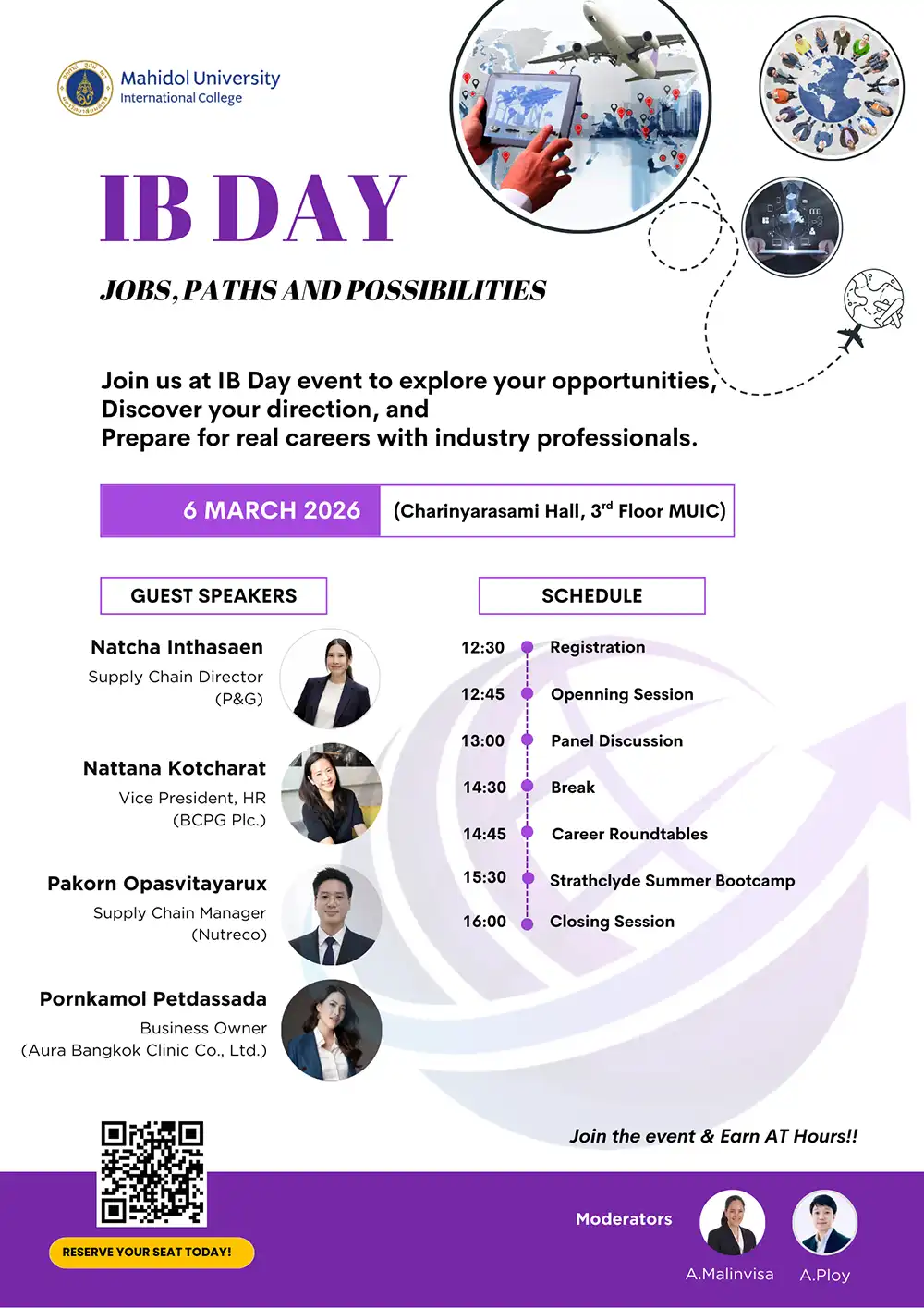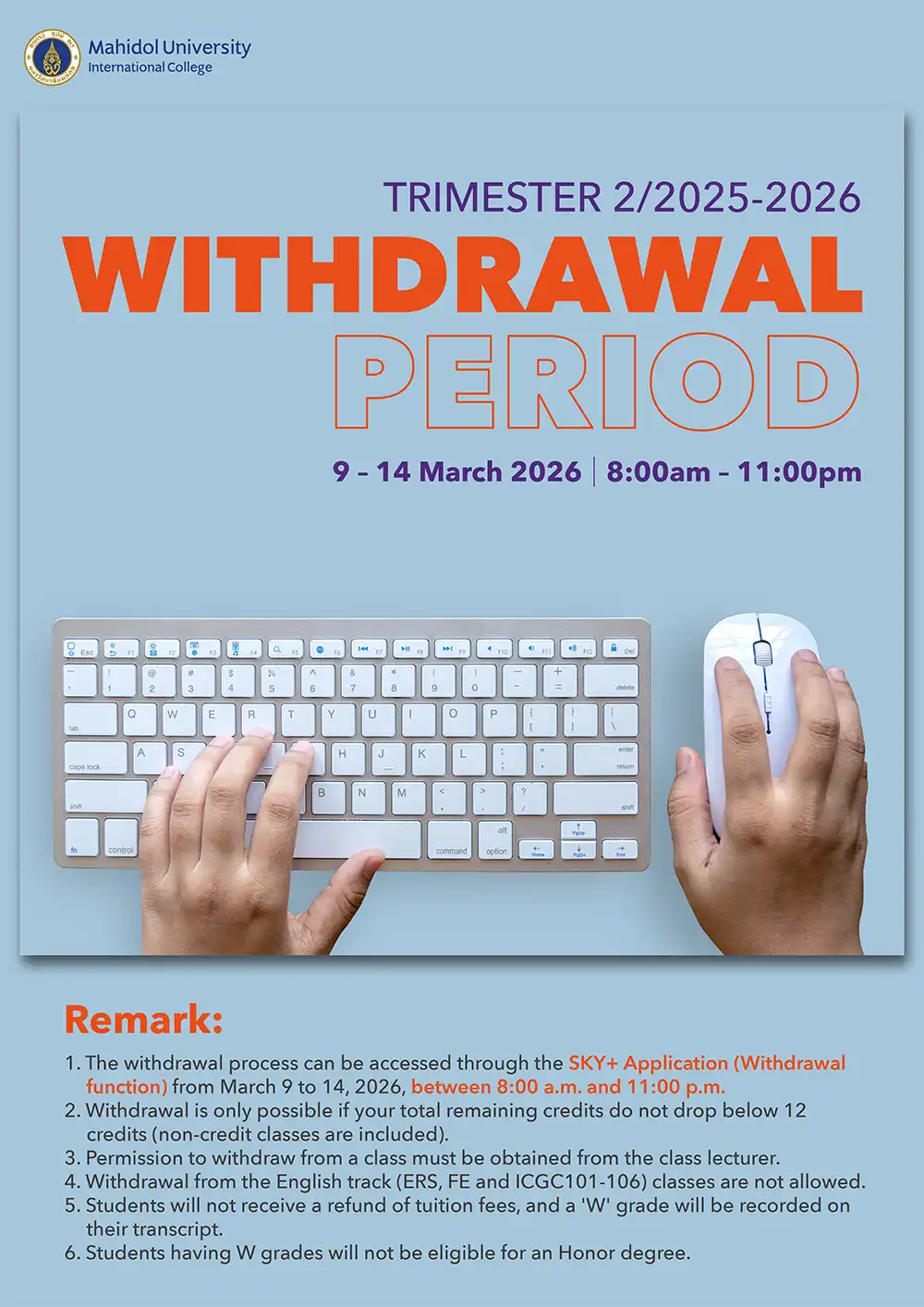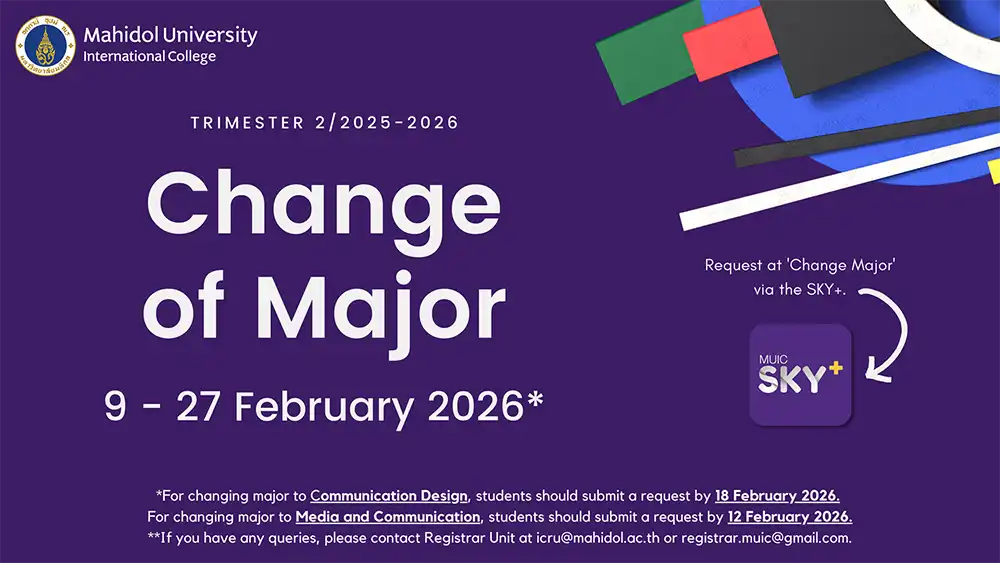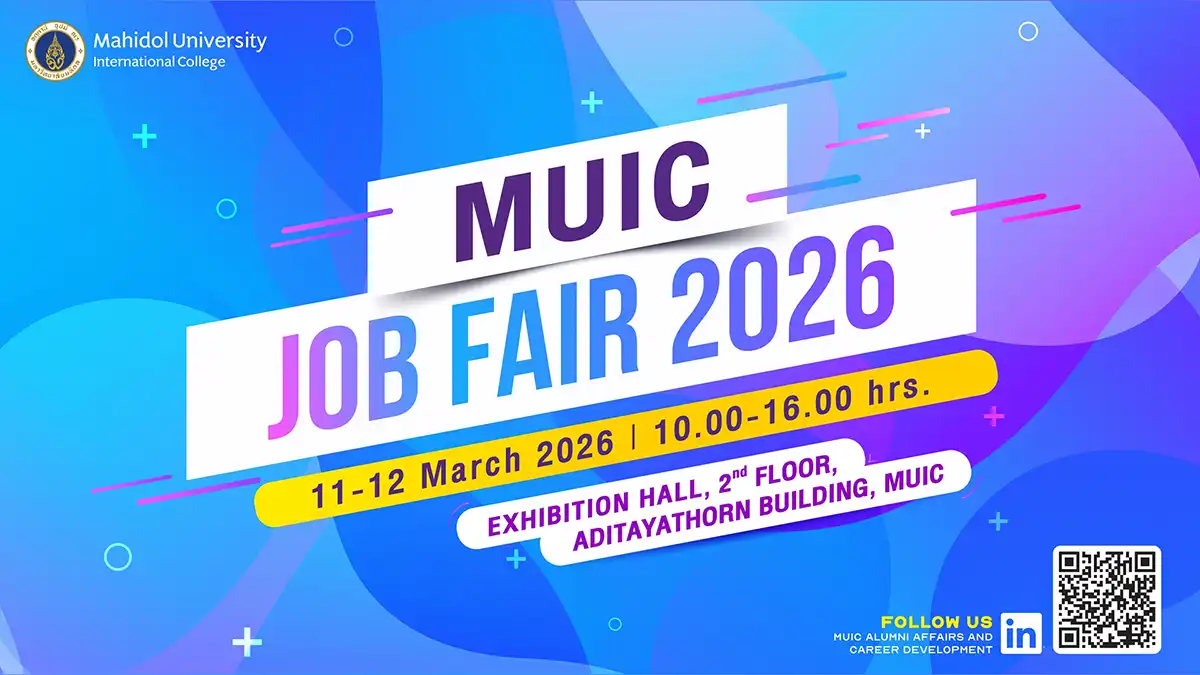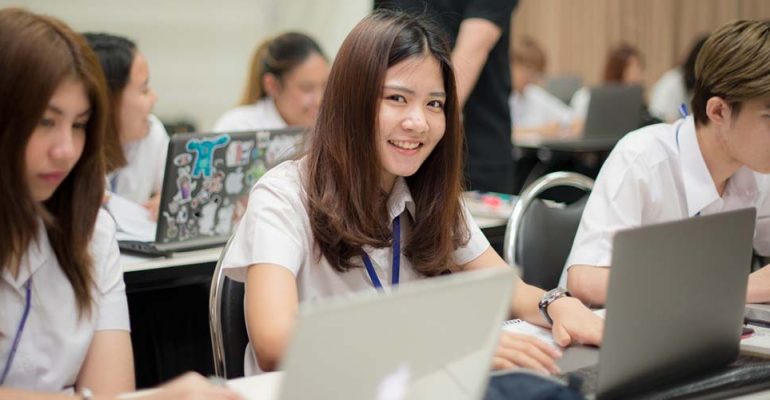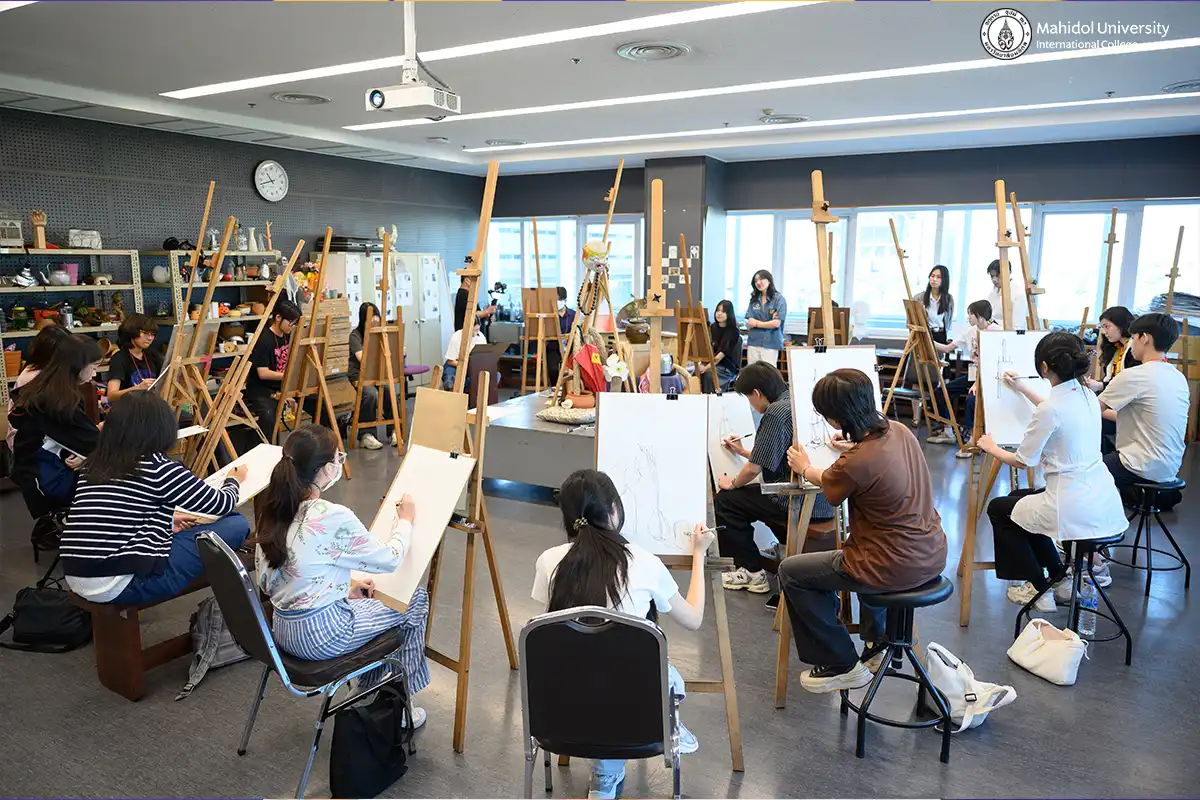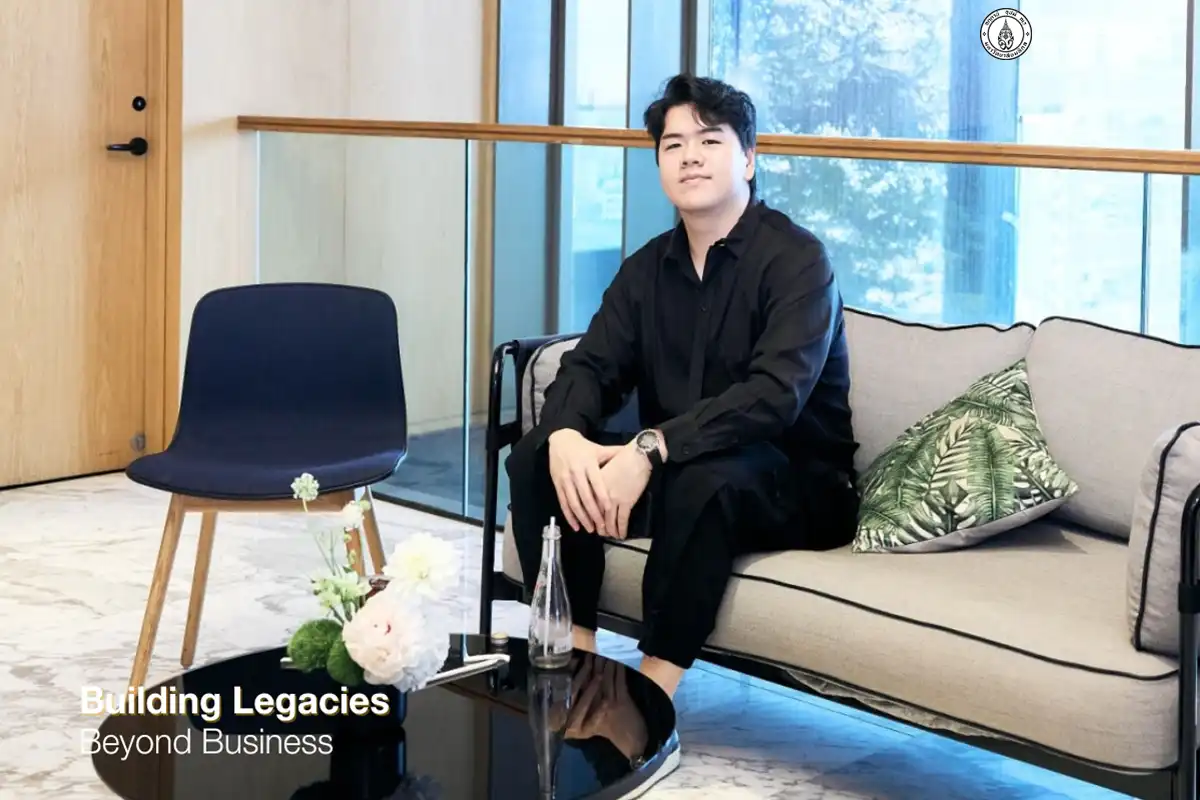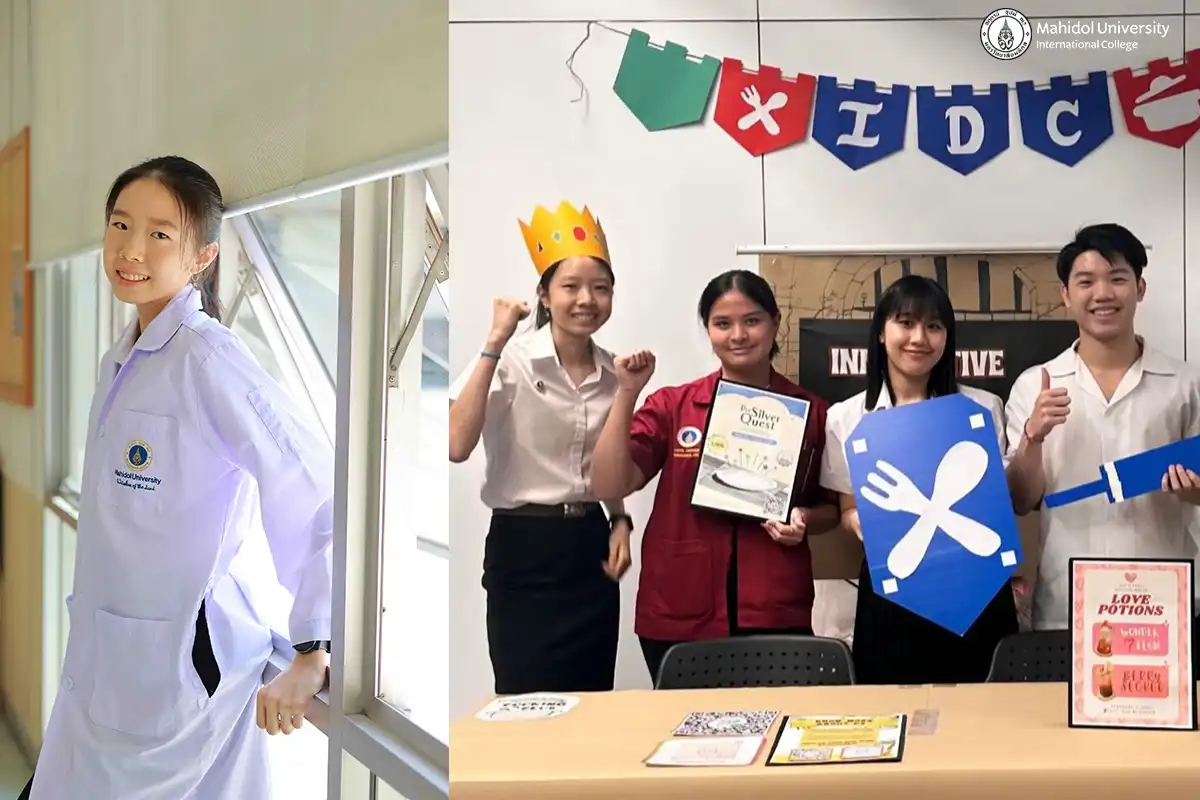Please choose a news and article category.
Recent MUIC Events
IB DAY 2026!
Withdraw Trimester 2/2025-2026
Change of major Trimester 2/2025-2026
MUIC Job Fair 2026
MUIC 360 Degrees
Innovative Project-based Learning at PC
February 8, 2021 2022-06-09 4:05Innovative Project-based Learning at PC
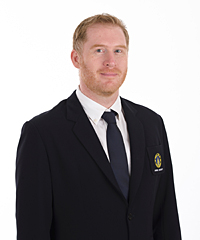
By George Willoughby
The Preparation Center for Languages and Mathematics (PC) at Mahidol University International College (MUIC) consists of four levels of intensive English courses (PC1, PC2, PC3, and PC4). Students are placed based on their current level of English. As they progress through the program, students will work on extended-term projects outside of their regular classes to develop key academic skills.
In each PC level, students work on the fundamental English skills of writing, reading, listening, and speaking, as well as on unique term projects. In addition to improving their English skills, these projects help prepare students specifically for university studies as well as future workplaces. The projects help develop vital academic skills as well as widening their knowledge of national and international news and important topics. Each term project is a step closer to students achieving their future university and career paths.
Students joining the PC program at level one will create their own website in English. This project helps PC1 students learn basic concepts of web design using Google Sites. No coding or programming knowledge is needed as students use the free Google platform to craft a website using text and images. They also design the site by changing the colors, text, and format of the webpages to their chosen style. In today’s fast-paced world of technological development, learning how to communicate online is vital, and designing basic websites gives students useful skills for the future such as being able to establish an online presence for their own business. The PC1 term project entails students having their own website where they can write about themselves and also give reports on recent news events in Thailand or their native country. This helps to encourage interest in current events and develop English skills by communicating key facts and opinions.
Next, in level two of the PC program, students take on a video project. This innovative project has students creating a six-minute news report. Using a smartphone, tablet, or laptop, a student can record and edit a very professional looking video. PC2 students are assigned a Southeast Asian country by their teacher and asked to research recent news events there. Singapore, Malaysia, Indonesia, Vietnam, Myanmar, Cambodia, Laos, Brunei, and the Philippines make up the Association of Southeast Asian Nations (ASEAN). By researching these countries, students develop their knowledge and understanding of Thailand’s neighbors and learn interesting aspects of the region’s cultural diversity that will be useful in their future studies and work. Students use English language news websites to learn about current events in their assigned ASEAN country and then produce their own news reports. This helps to improve their English language skills and significantly improve their confidence speaking in English while presenting on video. Students also conduct and record a three-minute interview in English with an individual who is knowledgeable about the news story. In the past, PC2 students have interviewed university professors, doctors, business people, and even government officials for their project videos.
In third and fourth PC levels, students move on to conduct more involved research in order to produce a term paper or presentation. This has been designed to focus students on the vital academic practices needed for them to succeed at university level study. Students research a controversial topic to write a research paper or create an academic presentation using citations and references to credit the information they have found. Citations and references are used to indicate the sources of information, so it does not look like writers are claiming the work of someone else as their own. For instance, if a student writes a report and uses statistics, citations and references would say where the information was found so that the readers can check for themselves. All university-level academic work requires this as does most report writing in business. During their term projects in PC3 and PC4, students learn how to do this correctly by including citations and a reference list for their sources. Creating a term paper or presentation helps students develop vital academic research skills as well as improving their English skills and academic English vocabulary. The term project topics also encourage students to develop a wider understanding of the modern world. In PC3 the topics rotate each semester between urban sustainability and Human Rights, while PC4 students research technological innovations for viability or companies in terms of corporate social responsibility. These topics have been selected for their global importance both today and in the future.
In each PC level, students are designated a teacher as a project advisor to guide them through the research process and give feedback on their work. Each project is worked on throughout most of the term, so students have approximately eight weeks to complete it. Students meet with their advisor to discuss their project several times during the course. In these meetings, students are given one-on-one detailed help and instruction on how to improve their work, with these sessions proving vital to the development of academic English skills. Students are also given a wealth of supporting material that is explained in detail by their teachers so that researching a new topic is not a daunting task.
Overall, these varied PC projects in each level help students to develop their confidence, understanding, and academic skills using English. The projects give students the opportunity to learn and improve themselves while working on an interesting extended project. They produce a piece of work they can be proud of and gain skills they will use again and again throughout their future studies and working lives.
___________________
About the author: George Willoughby has been an instructor at PC for 6 years. He has a degree in media studies from the University of the West of England.
